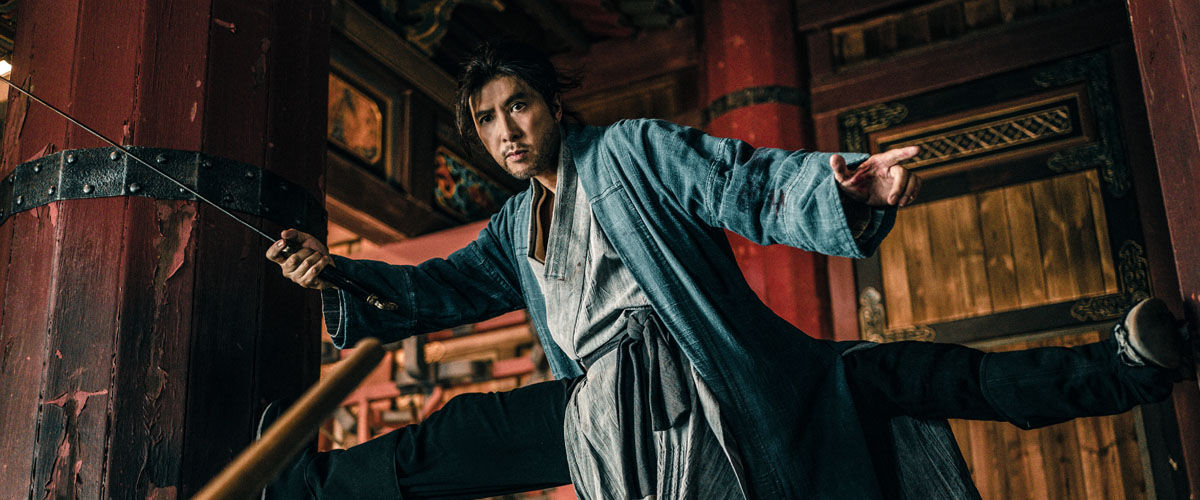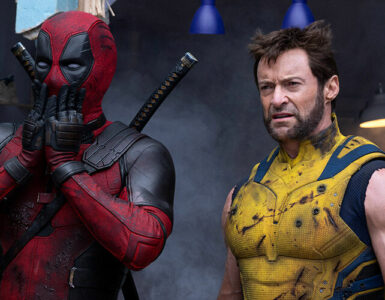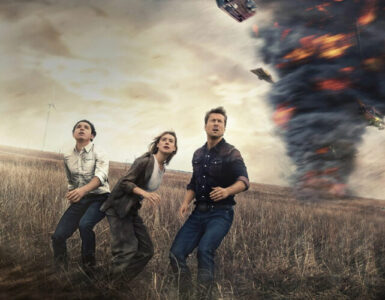The wuxia genre has long been a mainstay of Chinese fiction, carrying a storytelling legacy that dates back to the last days of the Qing dynasty (1644 to 1911). While traditionally a form of historical fiction revolving around martial artists and their adventures in ancient China, its popularity has spawned different adaptations such as Chinese opera, novels, manhua (comics), television, dramas, video games, and movies.
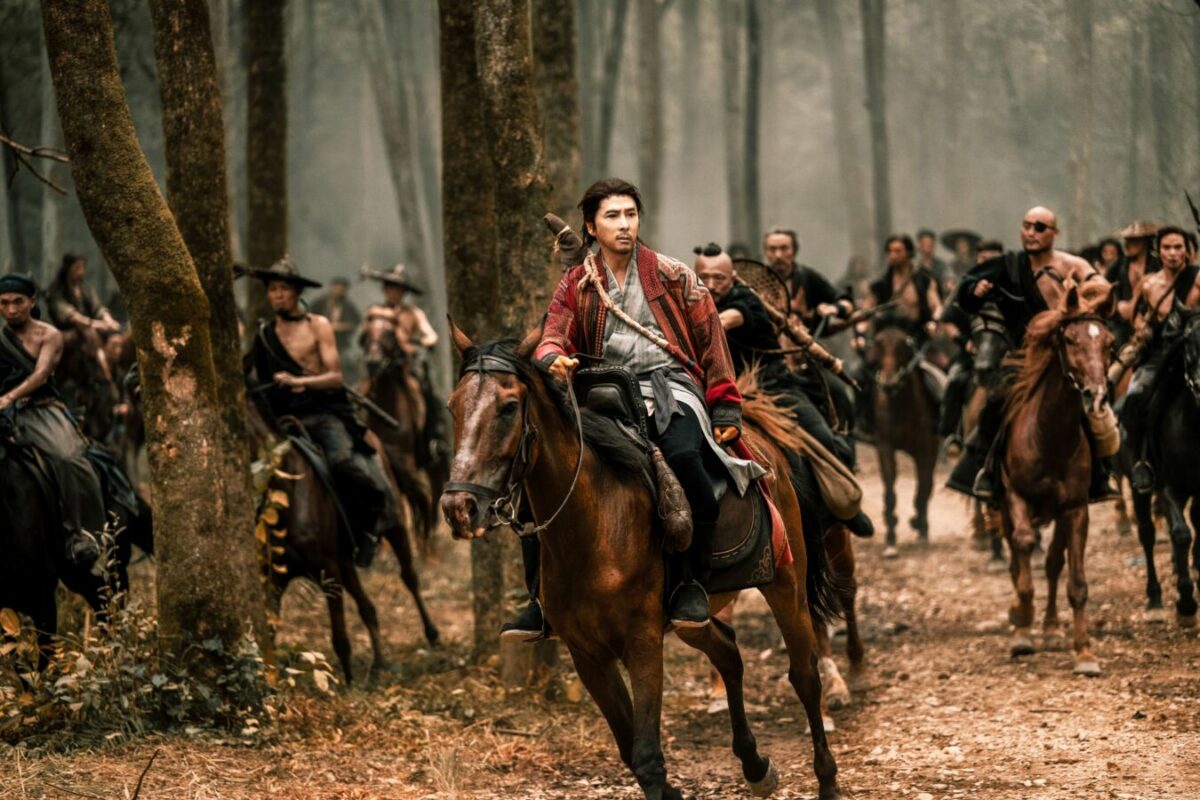
Sakra (天龙八部之乔峰传) is the latest to join the silver screen, with leading Hong Kong action star and Ip Man lead Donnie Yen serving as director, producer, and leading man. Adapted from the Demi-Gods and Semi-Devils (天龙八部), novel by renowned author Louis Cha (better known by his pen name, Jin Yong), Sakra is largely successful at delivering an enjoyable martial arts spectacle, but, like last year’s New Kung Fu Cult Master 1 (倚天屠龙记之九阳神功) and 2 (倚天屠龙记之圣火雄风), is immensely condensed, and doesn’t quite harness the same brand of finesse and nuance as its literary counterpart.
Where the source material features separate, intertwining storylines revolving around three protagonists, Qiao Feng, Duan Yu, and Xuzhu, this 130-minute movie focuses on only one central character – Qiao Feng (Yen). Much of his story remains the same here – the charismatic chief of the Beggar’s Sect, a martial arts faction featured prominently in the works of wuxia fiction, finds himself cast out after he’s revealed to be a Khitan and being wrongly accused of murdering his adoptive parents, alongside some fellow martial artists.
The ongoing political strife between the Han Chinese-dominated Song Empire and the Khitan-led Liao Empire, who are at war with each other, further worsens his standing in the wulin (martial arts community) world. His relations with the Han Chinese martial artists deteriorates, and he’s seen as a murderer and threat to the wulin. Now an outcast, Qiao Feng sets out on a quest to verify the claims of his identity and investigate the murders, with his love interest Azhu (Yukee Chen, Heavenly Sword and Dragon Slayer Sabre) by his side.
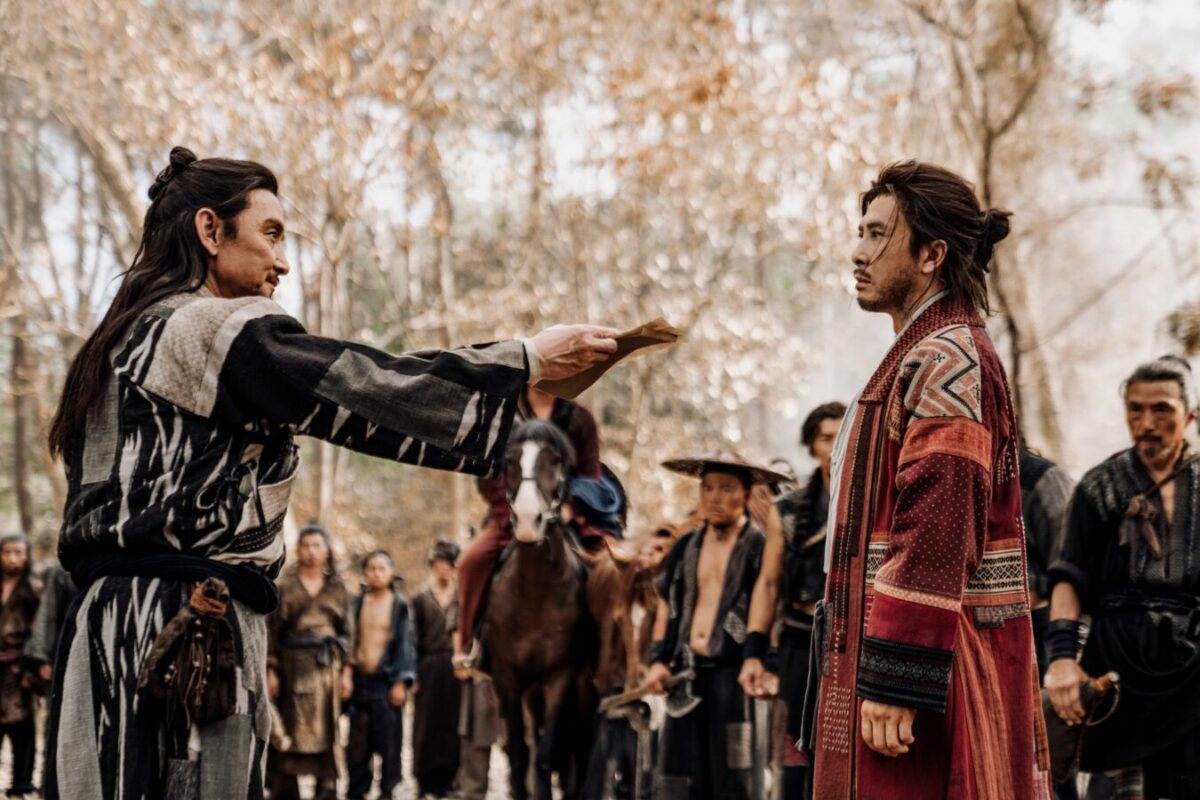
The journey that lies ahead is, however, filled with tribulations, one which puts the disgraced folk hero in a lot of combat scenarios as he gets blindsided by the supposed truth, and falls unwittingly into the hands of more unknown political forces. Narratively, Sakra retains the major story beats of the novel, but like most wuxia adaptations, it also blends in some original developments.
This decision to explore creative liberty is deliberate, as surfaced by Yen during a press conference held in Singapore on 12 January. While the effort is commendable, the execution does fumble a little on the silver screen – for all that the movie-specific scenes seek to flesh out the romantic journey of Qiao Feng and Azhu, they ultimately fail to convey the deep-seated love and enduring mutual devotion that defined their relationship in the novel.
That’s not to say there’s no onscreen chemistry between Yen and Chen, who are both convincing in their respective roles. Instead, much of the blame goes to the movie’s two-hour runtime, which makes it difficult to divide the focus equally between telling Qiao Feng’s journey and developing his love pursuits on the side.
As a rather short film, compared to a multi-episode TV series, the elimination of certain narrative elements is expected, especially with a work as dense and well-established as Demi-Gods and Semi-Devils, which spans five volumes and over one million characters. However, the pacing in Sakra would have been better if more screen time was dedicated to showing the pair in vulnerable, sincere heart-to-heart moments, rather than time skips and off-screen progression. As it stands, the pace at which Qiao Feng and Azhu grow close to each other is a rush job and takes away some of the emotional nuances that one would expect from a love story built from mutual trust, understanding, and admiration.
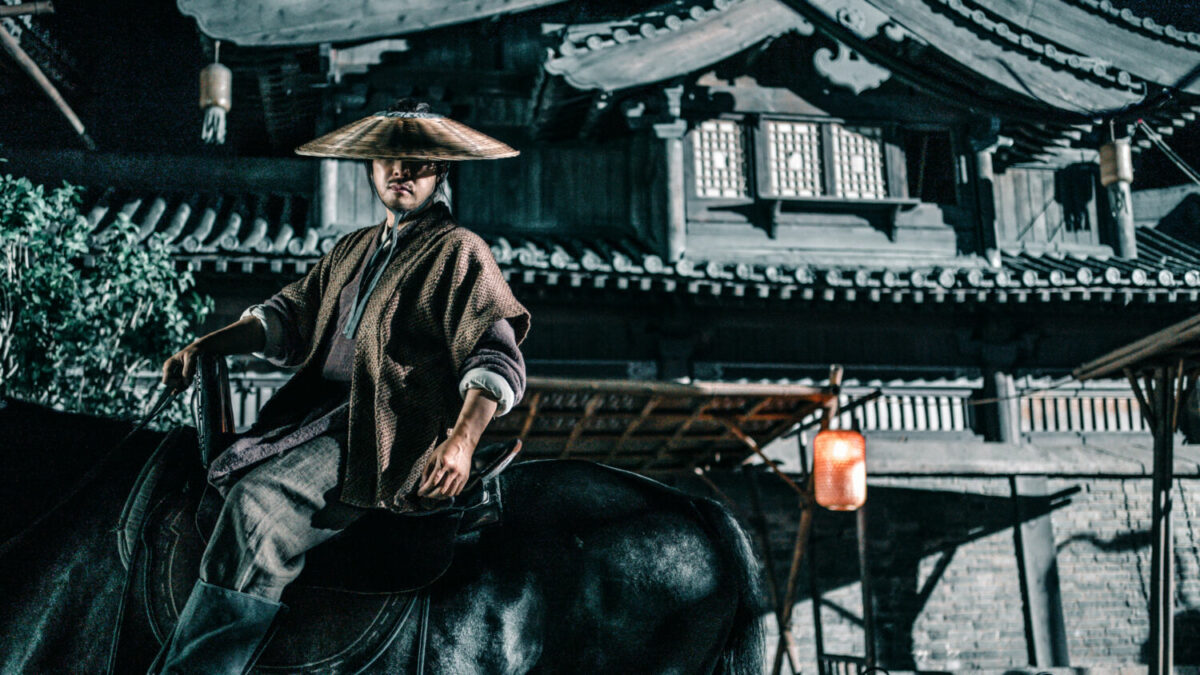
What does live up to expectations, though, is the action choreography. Yen, with his vast and extensive experience in the kung fu field, impresses once again in his delivery of exhilarating and dynamic fight sequences, even if Sakra lacks the touch of realism that permeates his other martial arts works, such as the Ip Man films.
As an adaptation of a wuxia epic, and one from Jin Yong to boot, the movie swaps out hard-hitting blows and swift footwork for techniques like qinggong and neigong, which in wuxia tales, are highly-exaggerated skills based on wushu and other real life Chinese martial arts. Essentially, the former allows users to circumvent gravity to fly, cover tremendous distances in a single stride, run across surfaces of water, mount trees, and jump over or scale high walls, while the latter uses stored and cultivated inner energy known as qi to give characters superhuman strength, speed, stamina, durability, and healing, as well as the ability to project energy beams and elemental forces from their bodies.
Sakra will thus be a familiar homecoming for fans of the traditional wuxia medium, such as The Legend of the Condor Heroes (射雕英雄) and The Return of the Condor Heroes (神雕侠女), but that doesn’t mean that newcomers won’t be able to enjoy it. Although some context is needed to understand specific parts of the plot or a character’s relationships with another, the overall story is as accessible as it gets, packing in enough exposition for the casual viewer.
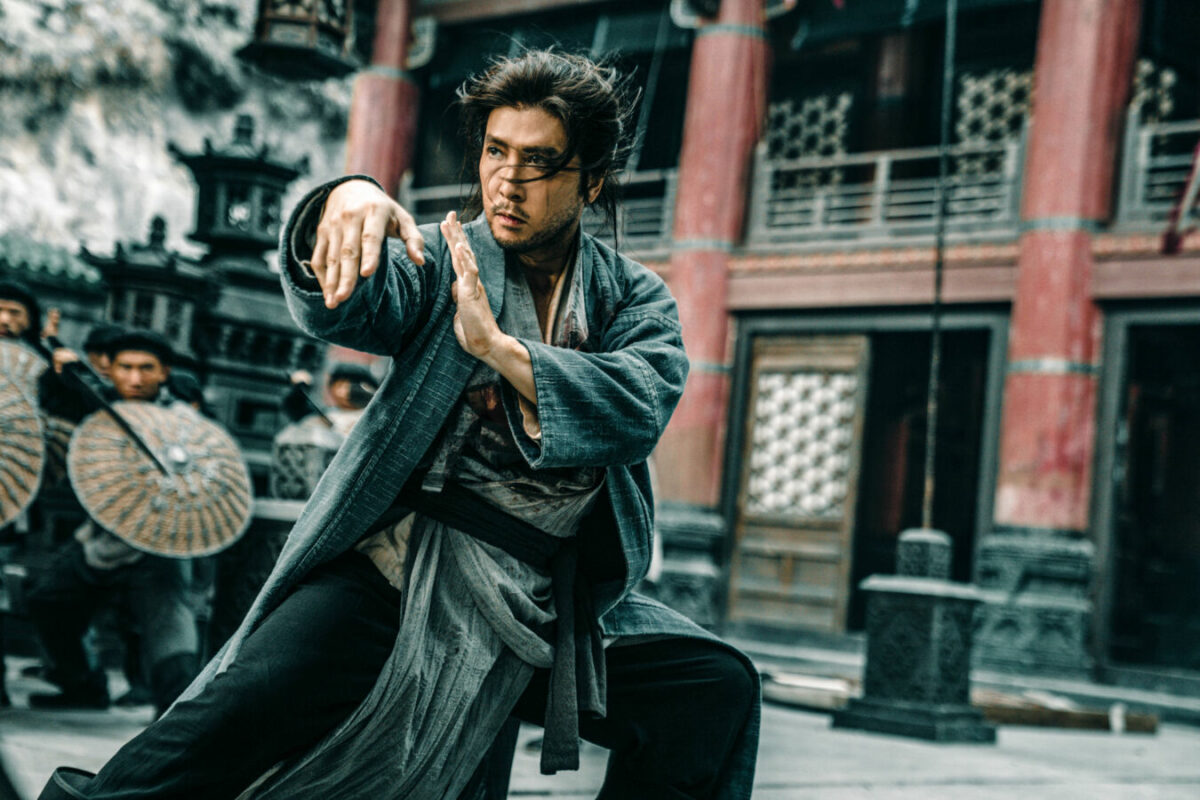
It certainly helps that Qiao Feng is a character who easily commands respect from the masses. Apart from his folk hero status, which already gives him a leg up in the relatability department, he strikes a charming, loyal, and courageous figure – traits that fit into the hero archetype of a traditional martial artist. As Qiao Feng embarks on his journey in Sakra, it’s easy to find yourself cheering him on, bemoaning his failures, and feeling angry for the injustices that befall him.
With the rich worldbuilding, character cast, and narrative depth of Jin Yong’s works, adapting any of them for the big screen has always, and will remain, a Herculean task. Yen has done an adequately decent job at bringing Qiao Feng’s story to the masses, especially as a first-timer (despite his extensive acting and directing credits, the actor-director has never gone into Jin Yong territory). Sakra isn’t the perfect adaptation – and there may actually never be one – with its narrative and pacing issues, but it represents a step forward in pushing a beloved literary hero beyond the waters of Chinese culture.
GEEK REVIEW SCORE
Summary
Sakra (天龙八部之乔峰传) presents a thrilling, entertaining wuxia spectacle for both genre enthusiasts and newcomers alike, though fans of Jin Yong’s works might want to shed some of their expectations before diving in for a more enjoyable watch.
Overall
7.8/10-
Story - 7/10
7/10
-
Direction - 7.5/10
7.5/10
-
Characterisation - 8/10
8/10
-
Geek Satisfaction - 8.5/10
8.5/10

